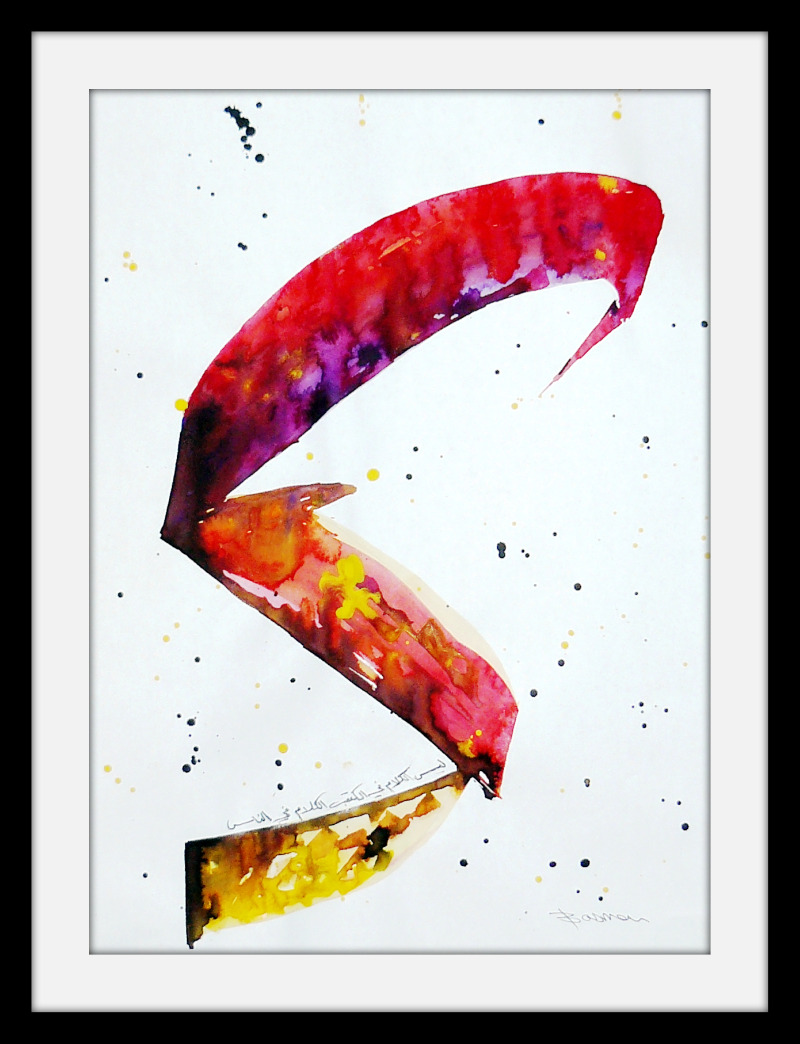FWP:
SETS == EK
ROAD: {10,12}
SCRIPT EFFECTS: {33,7}
This is the final verse of a three-verse verse-set; for general comments, see {123,9}. It is also the closing-verse of the divan form of the ghazal. Compare what was surely the original closing-verse, {123,14x}, which is amusingly different.
For discussion of jaadah , see {9,4}.
What an extraordinarily fruitful use of the word kashash ! Even by Ghalibian standards, it's a delight. There are of course the conspicuous sound collisions of three abrupt 'k' words in a row-- kashash-e kaaf-e karam . And here are some of the interpretive possibilities:
=A hope/expectation carries us along in some direction; to us the attraction of the road is the magnetic pull of access to kindness/generosity.
=A hope/expectation carries us along in some direction; to us the sweep of the road is the sweep of the tall letter 'k' at the beginning of the word 'kindness'/generosity.
=A (vain) hope/desire carries us off somewhere-- to us, the path of the road is the difficulty, or trouble, or misunderstanding in obtaining access to kindness/generosity.
Aren't these rich possibilities? And all of them even applicable,
too, to Ghalib's real-life situation as a poet en route to Calcutta, seeking
to have his pension increased by the East India Company.
Nobody is as good as Ghalib at this sort of radically multivalent and yet
utterly meaningful, relevant, even inevitable-seeming wordplay.

Nazm:
[He comments on the whole verse-set at {123,9}.]
== Nazm page 132